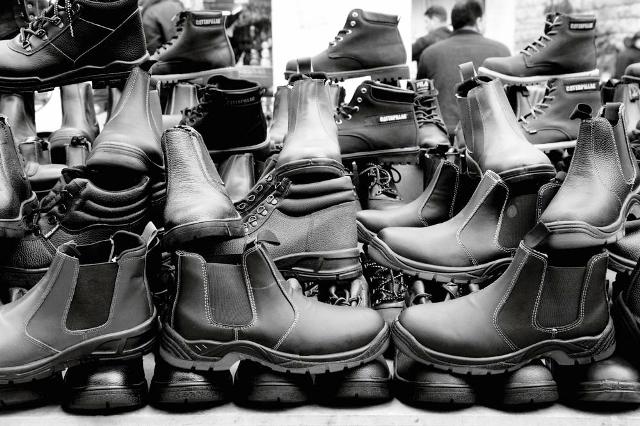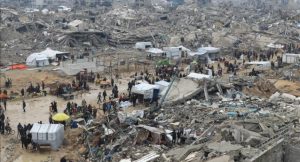
The local business of shoe-making used to sustain Hebron, but now cheap imports have flooded the market. (Photo: www.aljazeera.com)
Hebron, occupied West Bank, 16 Jumadil Akhir 1436/5 April 2015 (MINA) – The local business of shoe-making used to sustain Hebron, but now cheap imports have flooded the market. In a small office above his shoe sole factory, Tareq Abu Felat talks passionately about the industry that sustained the Palestinian city of Hebron for decades.
“Every single house in the city used to get direct or indirect income from the industry,” he told Al Jazeera. “In the ‘golden days’, at least 35,000 people were working in more than 1,000 workshops across the city,” Aljazeera quoted by Mi’raj Islamic News Agency (MINA) as reporting.
Those who worked in Hebron’s shoe-making industry at the time – between the 1970s and early 1990s – represented about one third of the city’s population. But the signing of the Oslo Accords and the 1994 Paris Economic Protocol opened the doors, under full Israeli control, for the mass importation of Chinese goods to occupied Palestine. The Palestinian Authority (PA) welcomed this without the necessary regulation.
Abu Felat, who chairs the Palestinian Federation of Leather Industries, believes the many containers of Chinese products that enter Hebron daily must be more strictly regulated in order to defend local businesses and consumers: “The government did not think about this when they allowed this to happen. The consumers found new styles and much cheaper alternatives to local shoes, but they are also much lower quality and lack health and safety testing.”
Also Read: Knesset Approves Draft Law Allowing Israelis to Own Property in Occupied West Bank
Although the PA ultimately put import taxes on Chinese products, Abu Felat said more must be done. The Palestinian Bureau of Statistics estimated in 2013 that as many as 90 percent of the shoes in Palestine’s markets were Chinese.
Less than 300 shoe-making workshops remain open in the city today, employing between 3,000 and 4,000 people in a city that today houses more than 170,000 Palestinians. Workshops run only part-time, and the vast majority of all business goes directly to Israel, where a better economic climate allows consumers to purchase the higher-quality shoes made in Hebron. (T/P3/R01)
Mi’raj Islamic News Agency (MINA)
Also Read: Heavy Rains Flood Tents of Displaced Palestinians in Southern Gaza

































 Mina Indonesia
Mina Indonesia Mina Arabic
Mina Arabic